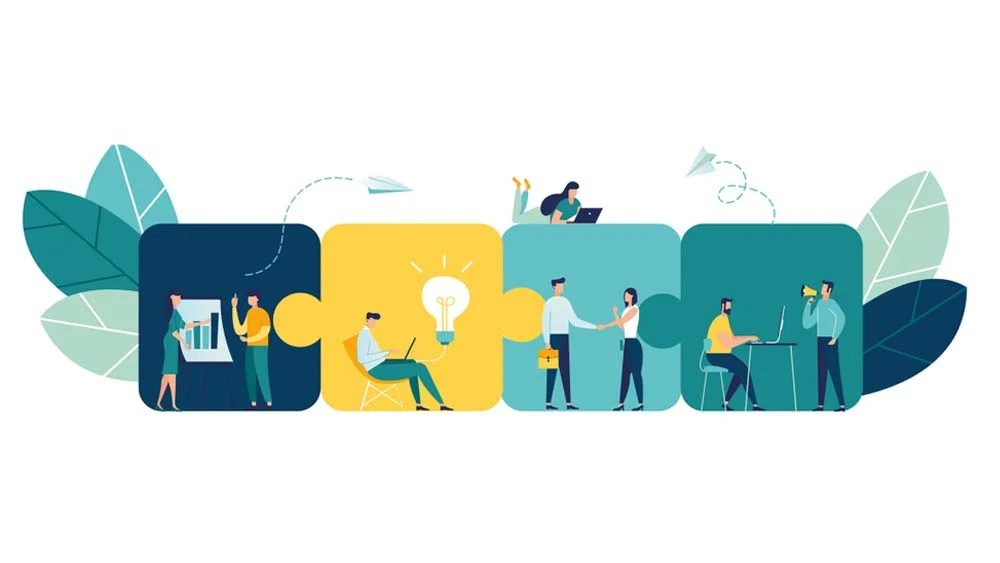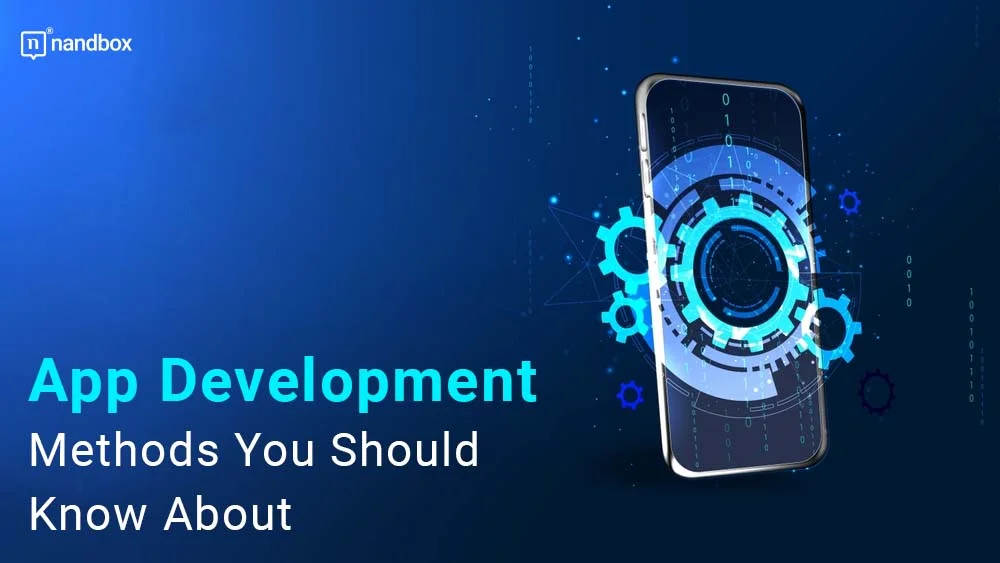A Comprehensive Guide to Top App Development Methodologies
All industries and markets are always on the move. The pace at which technology is moving and shifting has left them no choice but to try to be as fast as possible. The main aim of any company, especially one operating in the tech landscape, is to adapt to new technologies and trends. This can be a tad difficult in complex processes like app development. This is due to the fact that it takes much effort, planning, and time to be properly conducted. However, app developers have come up with an idea, or more of a method, where they could move with the process at a faster pace. This would be app development methodologies. In this article, we will dive deep into app development methods, exploring the top ones and how you could choose the best app development methodology for your development process.
What Are App Development Methodologies?
Let us start by giving a brief definition of exactly what app development methodologies are. Usually, having some guidelines and a blueprint to follow in any process is very beneficial and effective. That is because it can ensure that you follow all the steps and never overlook any aspect that would compromise the effectiveness of such a process. And this is exactly what any app development methodology is aiming for. An app development methodology is a structure or framework that an app developer can follow throughout the development process. App developers usually use these to plan, design, create, and deploy an application effectively. They cover everything concerning the development of an app, from being just an outline and an idea to being a final product that users can use.
What Should You Take Into Consideration When Choosing an App Development Methodology?
App development methods are not the same; they vary significantly. Each app development methodology has a special set of characteristics, principles, practices, goals, and many more aspects that any app developer should take into major consideration.
For instance, one of the things that app developers should consider is the flexibility of the project. It is important to get a thorough picture of the project in progress. This will help you identify its nature and determine whether or not flexibility should be prioritized. Keep in mind that not all methodologies provide the same level of flexibility and adaptability.
Another aspect that you need to consider is the timeline and budget. Both are the main priorities of all projects and development processes. It is vital to align your timeline and available budget with your app development methodology. This can be done by conducting a comparison with each and every methodology to determine which one matches your requirements and resources. By doing so, you could ensure a productive and efficient development process with a robust outcome.
The Top 5 App Development Methods
There are many app development methods—more than you could ever imagine. Now, let us get to explore the most commonly used ones that you usually encounter.
1. Agile
The first app development methodology, and probably the most popular one, is agile development. The agile development methodology is nothing like the traditional one. It emphasizes and focuses on user satisfaction and engagement more than anything else. Agile includes breaking down the whole process into multiple steps, each with its own tasks and procedures. Agile also focuses on collaboration between the teams involved in the process. It works as follows: Each team is assigned to a step or a part of the process, and each is conducted separately. After finishing each step and feature, it is presented to customers, where they give feedback and alterations are made accordingly.
2. Waterfall
The next on the list is the waterfall methodology, which is probably one of the oldest methods used in app development. Waterfall methodology is all about planning, which is why it has the longest cycle of all methodologies. This method works one way, with no return or ever going back. That is why, with each step finished, the development team will move on to the next immediately. That is why it takes much planning to ensure effectively and properly completing each stage of the project. Waterfall is not the most flexible methodology when it comes to app development, which is why it is not as used as the others.
3. Rapid
Moving next, we have the polar opposite of the waterfall app development methodology. Rapid app development, or RAD, is now the ultimate go-to for all businesses. This methodology involves including customers and users as much as possible throughout the process. It involves working on the project by creating prototypes based on the users’ feedback and demands, getting feedback, and repeating. This goes on until the final version is settled on, and then developers get the green light. Unlike waterfall, if developers discover a flaw, they wouldn’t have to start the project from the very beginning, as the RAD methodology is highly adaptable. However, as much as RAD can be efficient and adaptable, it can also have long cycles that take a lot of time if the project calls for many modifications.
4. Lean
Surprisingly enough, this app development methodology was inspired by Toyota. Yes, the car, and more specifically, the lean manufacturing process made by the company. Lean methodology is all about two main things: teamwork and efficiency. The methodology includes only focusing on important steps or stages of the development process and overlooking unnecessary ones that will hinder the app development process. Before taking any step forward, the development team needs to assess all the drawbacks that might happen and locate their resources accordingly. The main purpose of lean development is to optimize resources and reduce waste as much as possible.
5. Scrum
Lastly, scrum is one of the many methodologies that are favored by many organizations and developers. It is also known as being the most flexible one. The scrum methodology is based on three main parties: the app/product owner, who is responsible for conducting a list of features and requirements based on users’ feedback. The second party is the scrum master, who overlooks the whole project and helps facilitate collaboration between the development team as well as address any complications. The last part is the development team, which is responsible for creating and executing the list provided by the owner. In the lean methodology, the whole project is divided into small tasks to speed up the process and make execution easier. The process here ends with a final review meeting with all parties to take a final look at the application and either agree or ask for additional alterations.
The Importance of Choosing the Suitable App Development Methodology
Alignment with Project Goals and Requirements
Every project has its own unique set of goals, requirements, and limitations. By carefully considering these variables, you can select a methodology that will best serve the needs of your project. A waterfall technique may be more appropriate for a project with well-defined business needs and stricter safety compliance, while an Agile methodology would be more appropriate for a project with rapidly changing requirements.
Risk Management
Methodologies for app development can aid in risk management and reduction. Potential risks can be identified at an early stage and preventative measures can be taken by using the right technique. For instance, agile techniques enable continual adjustment to new conditions, which is very useful for mitigating risks.
Resource Allocation
The time and money needed to implement a given methodology will vary greatly. If you use the appropriate approach, you can maximize productivity. While the waterfall approach may necessitate more planning and documentation up front, agile approaches may call for more regular and frequent team collaboration.
Quality Assurance
The quality assurance process might be altered according to the methodology taken. For applications in highly regulated industries, it may be essential to use a development approach like Waterfall, which focuses heavily on thorough testing and documentation at every stage of the process. Yet, agile approaches may emphasize testing and iteration as essential to quality assurance.
Communication and Collaboration

App development methodologies also have an impact on the ways in which teams communicate with one another and work together. Improved communication and teamwork are two of the main benefits of using agile approaches, which emphasize customer participation and regular stand-up meetings. Potentially, this will result in a more open and adaptable development process.
Time-to-Market
The time it takes to bring a product to market is important to many different types of enterprises. Picking the right methodology can speed up or simplify development, which in turn shortens the time it takes to release the application. Faster delivery of working features and prototypes is one potential benefit of adopting app development methods like agile and scrum.
Client Satisfaction
In the end, it’s all about making the users satisfied with a successful app development project. The degree of similarity between the finished product and the client’s ideal is affected by the methodology chosen. Increased client satisfaction may be achieved through the use of agile methods, which encourage more regular communication and input from customers.
Adaptation to Change
Due to the rapid development of modern technology, adaptation is frequently required. Technological advances, market dynamics, or end-user demands can all be accommodated with the help of a flexible approach. This is why many businesses now favor modern and rapid development methodologies due to their agility and adaptability, which have made them popular in recent years.
En Fin
App development methodologies act as the foundation of any development process now. Not only do they help speed up the process, but they also ensure the effectiveness of the final product. You will certainly find the perfect app development methodology for your application, whatever the requirements. For instance, if you want flexibility, lean methodology is here. But if you are going for uniformity and consistency, then Waterfall is the one for you. The variety that methodologies offer makes it easy for all developers to find what they are looking for. So, have you found what you are looking for?




